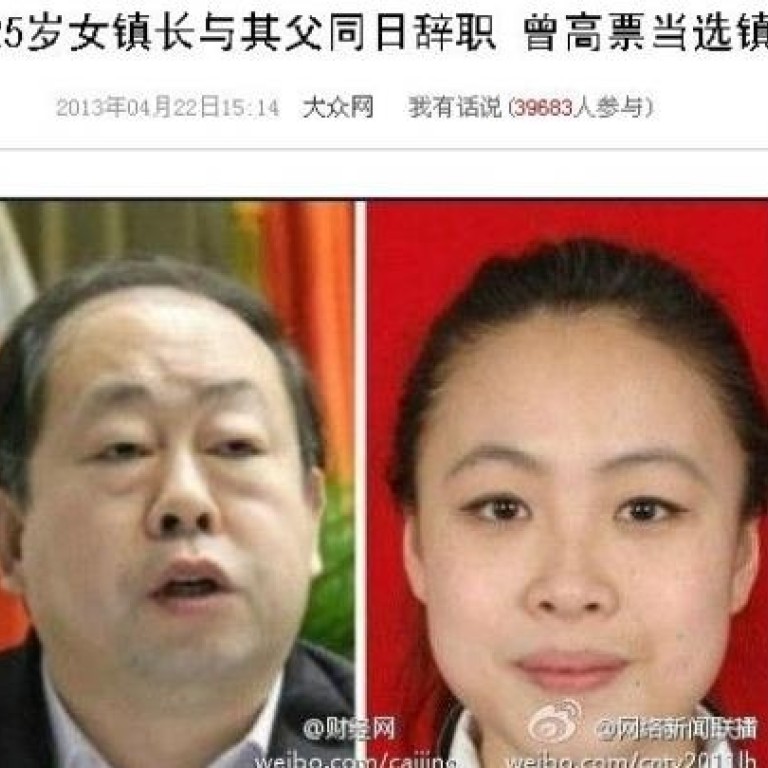
Call for probe into rise, and fall, of 25-year-old mayor in Jining
Commentators suspect pressure from above led Han Han, 25, to quit after 11 days, and urge an inquiry and greater transparency
Quick promotions of young local cadres with powerful relatives are no surprise to mainland newspaper readers.
But when Han Han, the 25-year-old mayor of a town in Jining, Shandong, quit her job last Sunday at the same time her father stepped down from an important post on the city's Communist Party committee amid online accusations she had climbed the bureaucratic ladder quickly because of her father, the story sparked heated discussion.
The mainland media criticised their resignations, saying the public should not let the scandal die down without a thorough investigation.
On April 10, Han Han was "elected" mayor by the Jishu township people's congress.
Doubts over her competency were raised online, with postings revealing that it had taken her three years to rise from a low-ranking township government employee to mayor when regulations say it should take at least five years.
Eleven days after her election, she resigned. Her father, Han Dongya, executive deputy director of the Jining party committee's organisation department, quit on the same day.
The called their decisions "odd".
For one thing, it said, cadres would normally pray for safe promotions and a happy retirement, and would not resign by choice. Also, many officials routinely ignored public accusations. So why did the Hans act differently?
Officials could easily address public doubts if they had not done anything wrong, it added.
The suspected pressure from above.
"After all, many incidents that have drawn public attention have cooled off because of the sacking or resignation of the people involved," it said. "When sacking or resignation can replace taking responsibility, many would naturally follow [that example]."
The also raised the possibility they were sacked. Quitting sounded more elegant.
With the central government encouraging the promotion of younger cadres, there have been young mayors or deputies in many local governments, including a deputy town mayor in Taishun county, Zhejiang, and deputy mayor in Donggang, Liaoning.
It urged the Jining city government to investigate.
The said the father's and daughter's prompt resignations showed how eager they were for people to stop questioning them. "If supervision within the government system cannot protect justice, onlookers will hardly maintain their attention," it warned.
The blamed leniency in punishing officials in similar situations.
An example is a 27-year-old deputy mayor of Xiangtan county in Hunan, whose parents, it was discovered, were officials in the county's Yuhu district government.
The Hunan provincial government announced the results of its investigation on Monday, saying there were some "procedural problems" in his promotions and six people were punished.
The punishments, however, were talks, criticism and internal party warnings.
The urged the introduction of a more transparent and fairer mechanism for the selection of government officials.
If the people had a say in selecting candidates and deciding on the final winner, and if the reasons for officials' promotion or demotion were disclosed, any cadre with a powerful father could stand up to doubts and supervision from the public, it said.

